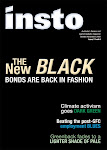The best of times for journalists?

Many grads can relate to having done all the 'right things' to get our foot in the door to Oz otherwise known as the media industry. With the early days of (at times) dull work experience, (more promising) internships, free bylines, and getting our first important media contacts through brilliant initiative and sheer luck long behind us, we were probably of those well placed to survive the competitive fight for limited entry level positions in media.
But since the global economy decided to explode, journalism's become an even harder gig to pull. We too have been left clinging desperately to the frame of that same door, kicking and screaming so it doesn't shut on us completely.
BBC journo Andrew Neil, in 2006, raised a similar argument to News Limited chairman John Hartigan's in 2007: that the digital age presents journalists with greater challenges but also massive opportunities that must be embraced in order to move forward. Though written from the comfort of a time when being made redundant was a condition only suffered by people close to retirement, rather than being a rite of passage for 20-somethings that might have otherwise been on their way to lifelong careers, I think some of his words still ring true today.
While I use the words 'journalist' and 'journalism' really loosely throughout this blog (the endless interpretations of what it means to be truly a part of that profession are so far-reaching they've made up entire semesters worth of discussion that are for another blog, another day), I come from a school of Journalism that has always drummed into its students the notion that 'journalism' and 'PR' always clash.
Yet as I learn more than ever before about the media in the workforce itself, it seems as if we all have to 'sell' ourselves, rather than 'prove' ourselves to be worth a position, now, perhaps more than ever before. Neil confirmed my fear:
"The editors of the future who want to entice the best and the brightest will have to cater for journalists who are brands in their own right and who develop their brands across various platforms, not always for you exclusively.
"The journalists of tomorrow will write for newspapers, contribute to magazines and podcasts, work for TV production companies and write their own blogs, because you wouldn't give them a column then they will sell the blog back to you at an inflated price"
Then again, maybe, as Neil suggests, this change will be to our benefit as it gives us greater independence from newspaper barons or media moguls, and therefore, better quality journalism:
"The days when journalists were wholly owned subsidiaries of a single editor are coming to an end, and those who try to run journalists that way will end up employing dummies and the best and the brightest will have gone elsewhere."
I guess technology's just made it that much harder, and easier at the same time to get in the door. Here's to hoping we can do it without (completely) losing our integrity in the process.








